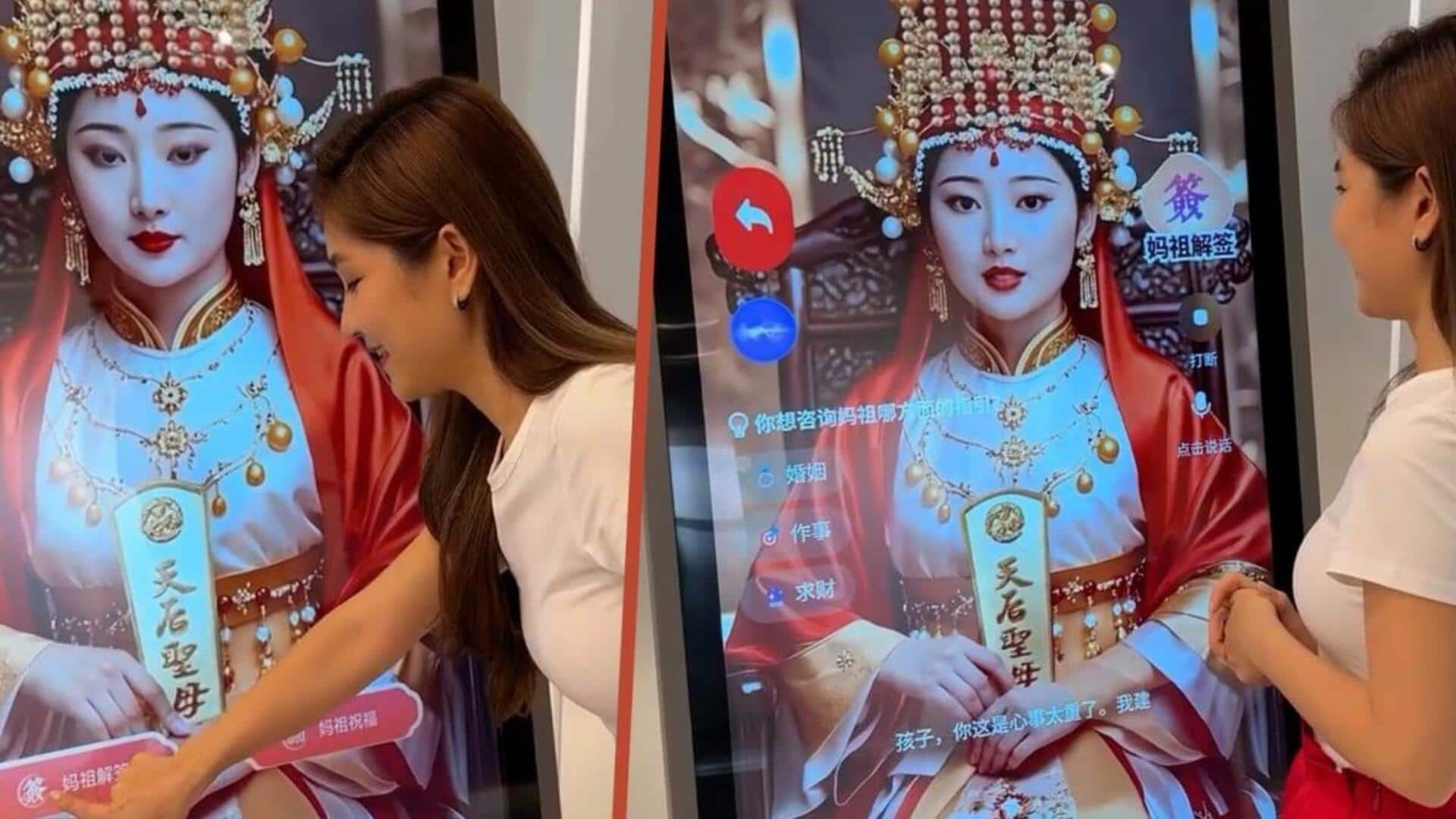
Can AI replace deities? Malaysia's temple just did the unthinkable
What's the story
A Taoist temple in Malaysia has unveiled what it claims to be the world's first interactive "AI Mazu statue."
The Tianhou Temple, situated in Johor, southern Malaysia, shared videos of worshippers engaging with the digital deity on a screen.
This virtual representation of the Chinese sea goddess Mazu is depicted as a woman in traditional Chinese attire.
Features
Statue offers blessings and answers
The AI Mazu statue is programmed to engage with worshippers, offering blessings and responding to their questions.
Worshippers can request blessings from the digital goddess, ask for interpretations of fortune sticks drawn at the temple, or even ask personal questions.
The temple proudly announced that this is "the first AI Mazu in the world."
The digital deity was created by Malaysian tech firm Aimazin, which also offers cloning services for people using AI.
Demonstration
Demonstrations of AI Mazu's interactions with devotees
In a demonstration video, Aimazin's founder, Shin Kong, asked the AI Mazu about luck in terms of unexpected fortune.
The digital goddess replied, "You would have better luck in terms of an unexpected fortune if you stay at home."
An influencer also asked the AI Mazu for advice on her insomnia. The virtual deity warmly suggested, "Drink some warm water before going to sleep."
Celebration
AI Mazu's launch coincides with sea goddess' birthday celebration
The AI Mazu statue was unveiled on the sea goddess' 1,065th birthday on April 20.
Mazu, who was born in 960 on Fujian Province's Meizhou Island as Lin Mo, is popularly regarded as a protector of sailors.
She ascended to heaven after dying while attempting to rescue shipwreck victims.
Today, she is worshiped by Chinese communities globally and across Southeast Asia, such as Malaysia, Singapore, and Indonesia.